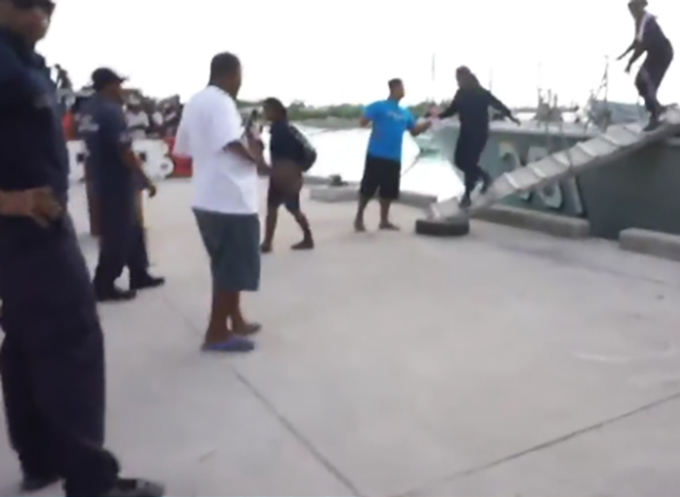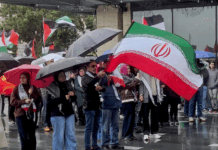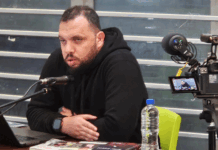Coming ashore … seven ferry disaster survivors reach Kiribati and tell their stories. Image: TVNZ video clip
By Barbara Dreaver, TVNZ’s Pacific correspondent
With 93 people still missing, the first reports of survival – and loss – are starting to emerge from the sunken ferry MV Butiraoi in Kiribati.
In the first interview with Radio Kiribati, one of only seven survivors Temake Ioane told how he had to watch his two children dying over several days.
Ioane said there were three explosions on the 17m catamaran and the third broke it in two.
Many did not survive the sinking, but those who did managed to clamber on to three boats.
However, Ioane said the rubber boat was so overloaded it split in half, leaving only two small dinghies.
The father of two said he managed to get his two children on board one of them – along with more than 20 others who either were on board on clinging to the side.
Only seven survivors have been found and family members have attended a church service in Auckland.
Clinging to boat for 6 days
Speaking in I-Kiribati, Ioane, who himself was clinging to the side of the boat for six days, said the ones that floated alongside the boats were the first to die “we prayed with them until they died”.
It was on the sixth day, without food and water, that the old women and children on board the boat started to die.
The first was his three-year-old son Tauti Temwake and then his eight-year-old daughter Remwati. Others were delirious from lack of water and jumped off the dinghy thinking they were going to buy food, he said.
On the January 28, 10 days after the ferry set sail from the island of Nonouti, only seven survivors including Ioane were found by the NZ Air force P3 Orion.
Ioane said he last saw the other remaining dinghy with the captain on board and other survivors drifting towards land after the ferry sank.
They have not been found.
Barbara Dreaver is TVNZ’s 1 News Pacific correspondent. This article is republished with permission.













































